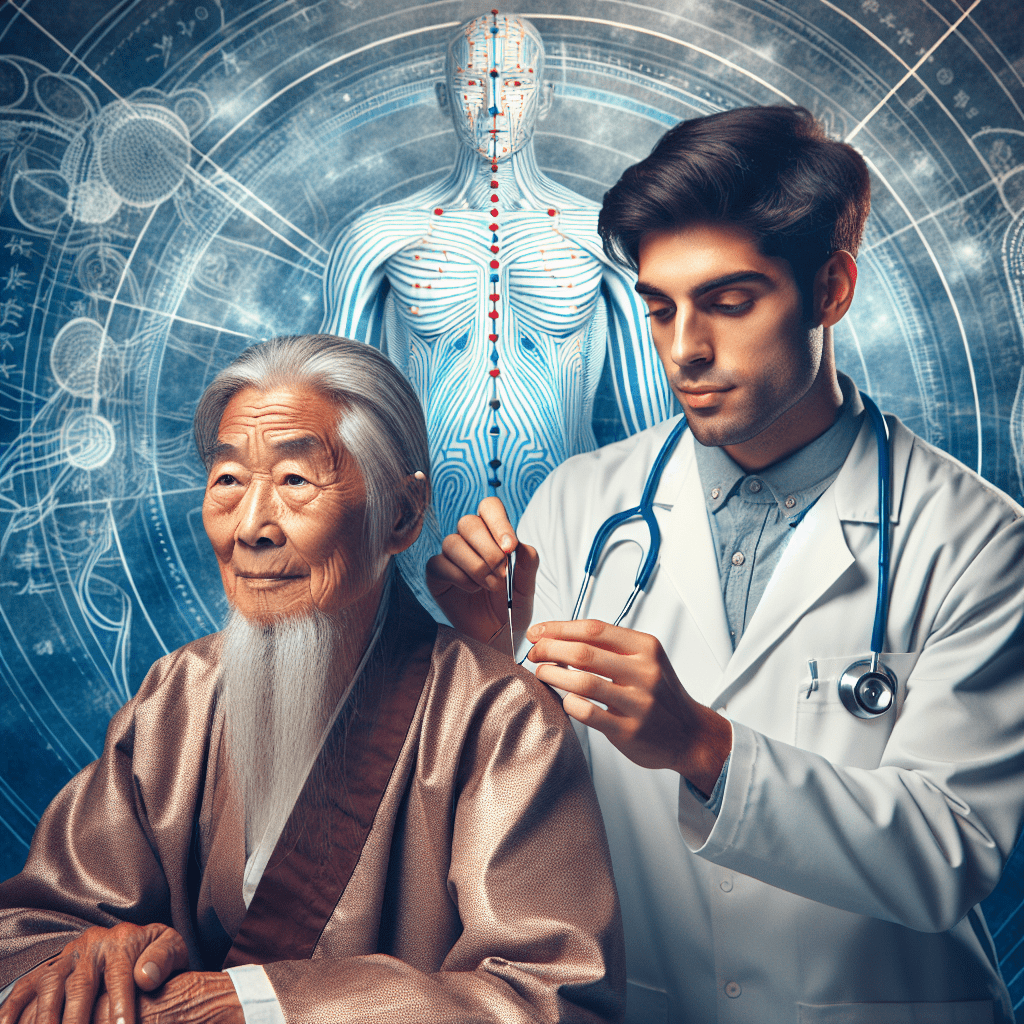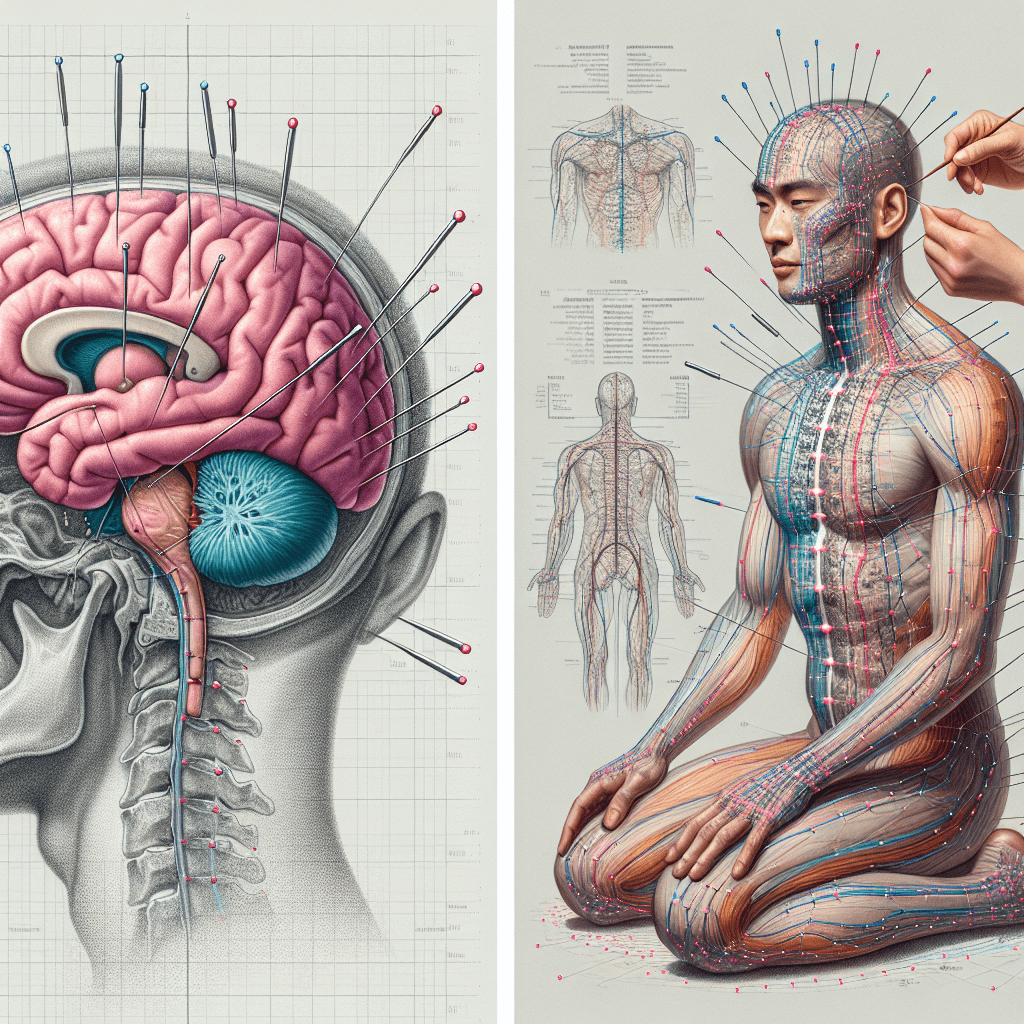In a world dominated by quick-fix pharmaceuticals, an ancient healing practice is making a remarkable comeback. Acupuncture, with its delicate needles and roots stretching back thousands of years, is increasingly becoming the go-to solution for people suffering from chronic pain. This traditional Chinese medicine technique isn’t just a historical curiosity—it’s proving to be a powerful alternative to conventional painkillers, including addictive opioids.
Acupuncture for pain relief is a 3,000-year-old healing technique that has stood the test of time. At its core, this practice involves inserting extremely thin needles into specific points on the body called “acupoints.” According to traditional Chinese medicine, these points are connected by pathways or meridians through which vital energy—known as “Qi” (pronounced “chee”)—flows. When this energy flow becomes blocked or imbalanced, pain and illness can result. Acupuncture aims to restore harmony and proper energy flow, ultimately alleviating pain and promoting overall wellness.
This ancient wisdom aligns perfectly with the philosophy we embrace at HerbalsZen, where we believe in blending time-tested Eastern healing traditions with modern approaches to wellness. Just as acupuncture has evolved over centuries while maintaining its core principles, we strive to honor traditional Eastern medicine while making it accessible through contemporary technology.
Beyond Pills: How Acupuncture Tackles Pain
Acupuncture offers an alternative approach to pain management without the side effects of conventional medications.
When it comes to managing pain, both acute and chronic, acupuncture has shown remarkable effectiveness. From persistent low back pain that makes getting out of bed a challenge to debilitating migraines that can derail your entire day, this ancient practice offers relief where modern medicine sometimes falls short.
“I tried everything for my chronic back pain—prescription medications, physical therapy, even surgery,” shares Sarah, a 45-year-old teacher who discovered acupuncture after a decade of suffering. “After just six acupuncture sessions, I experienced more relief than I had in years of taking painkillers. The best part? No side effects.”
What makes acupuncture particularly valuable in today’s healthcare landscape is its potential to reduce reliance on opioid medications. The opioid crisis continues to devastate communities worldwide, with prescription painkillers often serving as a gateway to addiction. Recent research published in the Journal of Pain Research shows that patients who received acupuncture treatment experienced a 20% decrease in opioid use compared to non-treated patients. This significant reduction highlights acupuncture’s potential as a front-line defense against pain that doesn’t carry the risk of dependency.
This approach to pain management reflects HerbalsZen’s holistic philosophy toward health and wellness. Rather than simply masking symptoms with pharmaceuticals, we believe in addressing the root causes of discomfort through natural means. Acupuncture, like our own health guidance systems, recognizes that true healing requires a comprehensive approach that considers the entire person, not just isolated symptoms.
The Science Behind the Needles
Modern research is now explaining the physiological mechanisms behind acupuncture’s effectiveness.
While acupuncture’s origins may be ancient, modern science is finally catching up to explain how these tiny needles can have such powerful effects on our perception of pain. The explanation lies in the complex interaction between our nervous system, brain chemistry, and immune responses.
When an acupuncture needle stimulates a specific point, it activates nerve endings that send signals to the brain. This stimulation triggers the release of endorphins—the body’s natural painkillers—along with other neurochemicals like serotonin that regulate mood and contribute to feelings of wellbeing.
Dr. Michael Reynolds, a neurologist who studies acupuncture’s effects, explains: “What we’re seeing is that acupuncture essentially hacks into the body’s own pain management system. The needle stimulation activates multiple pathways that downregulate pain perception, essentially turning down the volume on pain signals.”
Neuroimaging studies reveal that acupuncture predominantly activates areas crucial for pain processing, including the frontal lobe, limbic system, and parietal lobe. Researchers have observed that after acupuncture treatment, areas like Brodmann Area 4 and 6 show decreased neuronal activity, correlating with reduced pain sensation.
Furthermore, acupuncture appears to modulate inflammation through its effects on the immune system. Studies show that it can decrease pro-inflammatory markers while increasing anti-inflammatory compounds, helping to reduce pain and promote healing at a cellular level.
This scientific understanding of acupuncture’s mechanisms resonates with HerbalsZen’s approach to wellness. Just as we use advanced AI technology to interpret and apply complex Eastern medical theories to individual health needs, modern research is helping us understand the physiological basis for acupuncture’s time-tested effectiveness.
Evidence in Action: Research Supporting Acupuncture for Pain
Clinical studies continue to validate acupuncture’s effectiveness for various pain conditions.
The evidence supporting acupuncture for pain relief continues to grow, with numerous high-quality clinical trials demonstrating its effectiveness for various conditions.
For chronic low back pain—one of the most common complaints that brings people to acupuncture—a meta-analysis published in the Journal of Pain found that acupuncture was significantly more effective than both no treatment and sham acupuncture (a control procedure where needles are placed in non-acupuncture points). The benefits persisted for at least 12 months after treatment ended, suggesting long-term relief rather than just a temporary fix.
Migraines and tension headaches also respond well to acupuncture. A large-scale study involving over 18,000 patients found that those who received acupuncture experienced fewer headache days and reduced pain intensity compared to control groups. For many participants, the reduction in headache frequency continued well beyond the treatment period.
Arthritis pain, particularly in the knee, has shown remarkable improvement with acupuncture therapy. A study published in the Annals of Internal Medicine found that patients with knee osteoarthritis who received acupuncture reported a 40% decrease in pain and a 40% improvement in function compared to baseline.
These research findings are complemented by countless real-life success stories. James, a 62-year-old with arthritis in both knees, shares: “My doctor told me I needed knee replacement surgery, but I wanted to try less invasive options first. After eight weeks of acupuncture, I was able to walk up and down stairs without pain for the first time in years. I haven’t taken a pain pill since.”
This evidence-based approach to validating traditional practices aligns with HerbalsZen’s commitment to combining ancient wisdom with modern verification. Like our EASTCHI AI system, which draws on both time-tested Eastern medical theories and current scientific understanding, acupuncture brings together the best of both worlds—traditional knowledge confirmed by contemporary research.
What to Expect: The Acupuncture Experience
Understanding what happens during an acupuncture session can help ease concerns for first-time patients.
If you’re considering acupuncture for pain relief, you might wonder what the treatment entails. Unlike the one-size-fits-all approach of many pain medications, acupuncture treatment is highly individualized, with protocols tailored to each person’s specific condition, constitution, and needs.
A typical first session begins with a comprehensive consultation where the practitioner evaluates your health history, examines your tongue (an important diagnostic tool in traditional Chinese medicine), and checks your pulse at different positions. This detailed assessment helps determine which acupuncture points will be most beneficial for your particular pain condition.
During the treatment itself, you’ll lie comfortably on a table while the acupuncturist inserts hair-thin needles at selected points. Most people feel minimal discomfort—perhaps a slight pinch followed by a dull ache or tingling sensation that Chinese medicine calls “de qi,” considered a sign that the treatment is working. Once the needles are in place, you’ll rest quietly for 20-30 minutes while they do their work.
The frequency and duration of treatment depend on your specific condition. Acute pain might resolve with just a few sessions, while chronic conditions typically require a longer course of treatment—often 1-2 sessions weekly for several weeks, followed by maintenance visits as needed.
Lisa, who sought acupuncture for fibromyalgia, describes her experience: “I was nervous about the needles at first, but they’re nothing like getting a shot. My acupuncturist developed a treatment plan specifically for my pain patterns, targeting not just the painful areas but also points that helped with my sleep and anxiety, which made the pain worse. It was the first time I felt like my entire health picture was being considered.”
This personalized approach mirrors the tailored health guidance provided by HerbalsZen’s EASTCHI AI, which analyzes individual constitutional types and provides customized recommendations rather than generic advice. Both systems recognize that effective healing must be adapted to the unique needs of each person.
The Future of Pain Management: Ancient Wisdom Meets Modern Needs
Acupuncture represents a bridge between ancient wisdom and modern healthcare needs.
As we face the limitations and dangers of conventional pain management approaches, acupuncture stands out as a promising complementary therapy that offers relief without the risks of addiction or side effects. Its growing acceptance in mainstream healthcare settings—from hospitals to military facilities—speaks to its proven effectiveness and safety profile.
For those suffering from chronic pain, acupuncture offers hope beyond pills. It represents a return to a more holistic understanding of health, one that treats people rather than just symptoms, and seeks to restore balance rather than simply suppress discomfort.
Dr. Anna Chen, who integrates acupuncture into her pain management practice, observes: “What’s remarkable about acupuncture is that patients often report improvements beyond just pain reduction. They sleep better, have more energy, and experience less anxiety. It’s a reminder that in the body, everything is connected—a principle that traditional Eastern medicine has recognized for millennia.”
This interconnected view of health lies at the heart of HerbalsZen’s philosophy as well. Like acupuncture, our approach recognizes that true wellness cannot be compartmentalized. The same Eastern wisdom that informs acupuncture’s understanding of energy meridians and balance guides our nutritional recommendations and lifestyle advice.
As you consider your options for managing pain, we encourage you to explore the potential of this ancient healing art. While acupuncture isn’t a magical cure-all, its long history and growing scientific validation make it a valuable tool in the quest for natural pain relief.
At HerbalsZen, we’re committed to helping you discover the best of Eastern healing traditions and incorporating them into your modern wellness journey. Whether through acupuncture for pain or personalized nutrition based on traditional principles, these time-tested approaches offer valuable alternatives to conventional medicine—gentle yet powerful ways to support your body’s natural healing abilities.
The ancient needles of acupuncture are indeed proving their worth in our modern world, offering a path to pain relief that honors the body’s complexity and healing capacity. In this meeting of East and West, old and new, we find solutions that are both innovative and timeless—just like the balance we strive for in all aspects of health and wellness.



